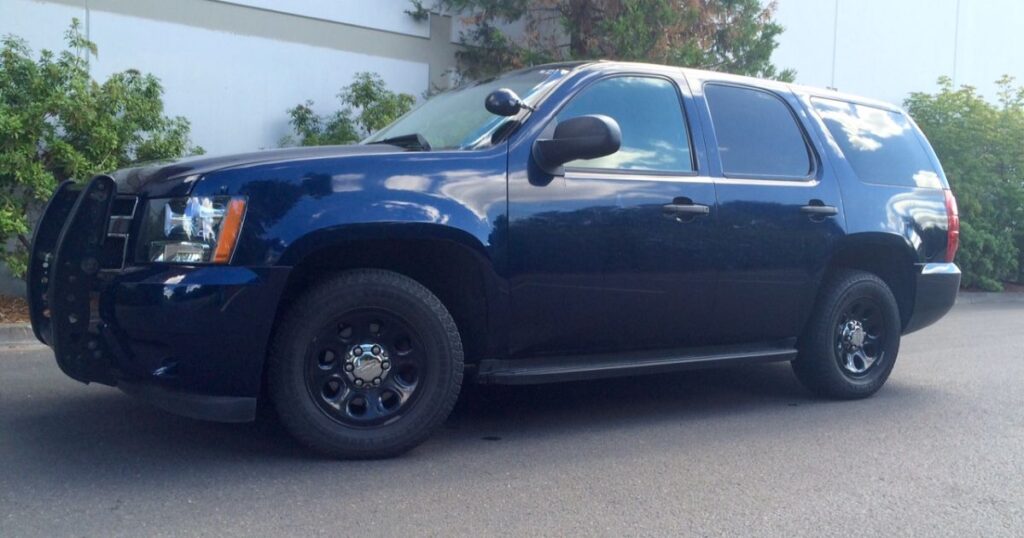For many low-income Americans, the lack of reliable transportation is a significant barrier to accessing employment, education, and essential services.
Government car voucher programs aim to remove this obstacle by providing financial assistance to help purchase affordable vehicles.
These initiatives empower disadvantaged individuals and families, unlocking opportunities for economic stability, self-sufficiency, and an improved quality of life through reliable personal transportation.
How Government Car Voucher Programs Empower Low-Income Americans
For many families living below the poverty line, reliable transportation can feel like an unattainable luxury.
Public transportation schedules might not align with work hours, or suitable job opportunities may be located outside easily accessible routes. This lack of mobility creates a significant barrier to:

- Securing and Maintaining Employment: Without reliable transportation, individuals may struggle to arrive at work on time or attend interviews for better job prospects.
- Pursuing Education and Training: Attending classes or job training programs can be difficult without access to a vehicle, hindering opportunities for skill development and career advancement.
- Accessing Essential Services: Groceries, healthcare appointments, and childcare facilities may be out of reach for those without personal transportation.
Car voucher programs offer a critical lifeline by providing financial assistance to help low-income individuals and families purchase reliable vehicles. Owning a car can be transformative, enabling individuals to:
- Increase Earning Potential: With reliable transportation, a wider range of job opportunities becomes accessible, potentially leading to higher wages and greater career advancement.
- Invest in Education and Training: Car ownership allows for easier access to educational institutions and training programs, fostering skill development and long-term career growth.
- Become Self-Sufficient: The ability to run errands, access healthcare, and transport children independently fosters overall well-being and empowers individuals to be proactive in managing their lives.
Beyond the immediate benefits, car voucher programs offer a significant economic advantage. By enabling individuals to secure employment and participate in the workforce, these programs contribute to a stronger economy and a more productive society.
Case Study: How a Car Voucher Changed Maria’s Life
Maria, a single mother of two, had been struggling to make ends meet while relying on public transportation to get to her job at a local restaurant. Her commute often took over an hour each way, and she frequently had to to pick up her children from daycare, risking her job.
After learning about a local car voucher program, Maria applied and was approved to receive financial assistance toward the purchase of a used vehicle. With her new car, Maria’s commute time was cut in half, allowing her to work longer hours and even take on a part-time job at a nearby retail store.
The reliable transportation also enabled Maria to enroll in an online course to earn her high school equivalency diploma, a crucial step toward pursuing better career opportunities. Today, Maria is not only financially stable but also feels empowered to create a brighter future for herself and her family.
The Economic Benefits of Car Ownership through Voucher Programs
Government car voucher programs offer more than just a way for individuals to get from point A to point B.
By empowering low-income Americans with reliable transportation, these initiatives create a ripple effect of economic benefits that extend far beyond the initial recipient.

Here are some key ways car ownership, facilitated by voucher programs, can boost the economy:
- Increased Employment and Labor Force Participation: When individuals have access to reliable transportation, they can explore a wider range of job opportunities, particularly those located outside easily accessible public transportation routes. This translates to a larger pool of available workers for businesses, potentially reducing labor shortages and stimulating economic growth.
- Enhanced Productivity: Employees with reliable transportation are more likely to arrive at work on time, attend essential meetings, and complete tasks efficiently. Reduced absenteeism and improved work performance contribute to a company’s overall productivity and profitability.
- Boosted Tax Revenue: As individuals secure better-paying jobs, their tax contributions increase, generating additional revenue for the government. This revenue can then be used to fund essential public services and infrastructure projects.
- Increased Consumer Spending: Owning a car empowers individuals to explore a wider range of shopping options, potentially leading to increased consumer spending at local businesses. This stimulates economic activity in various sectors, from retail stores to restaurants and gas stations.
- Improved Access to Education and Training: Car ownership allows individuals to access educational institutions and job training programs outside their immediate vicinity. This fosters skill development and empowers individuals to pursue career advancement, leading to higher-paying jobs and increased tax contributions in the long run.
The economic benefits of car voucher programs extend beyond immediate financial gains. By fostering a more mobile and engaged workforce, these programs contribute to a stronger and more vibrant local economy.
Types of Car Voucher Programs
Government car voucher programs come in various forms, each addressing specific needs and goals. Here’s a breakdown of some common program types:
Vehicle Replacement Programs:
These programs target individuals with high-polluting vehicles, offering vouchers to help them transition to cleaner, more fuel-efficient models.
This not only benefits the environment but also improves public health by reducing harmful emissions. An example of a program like this is the California Clean Vehicle Rebate Project.
Workforce Development Programs:
These programs prioritize individuals seeking employment or enrolled in job training programs. Reliable transportation can be a game-changer in securing and maintaining a job.
An example is the Chicago Apprentice Transportation Program, which offers car voucher assistance specifically for apprentices enrolled in job training programs.
Low-Income Assistance Programs:
These programs target low-income earners who need a car for essential errands, healthcare access, or childcare routines.
An example is the Rhode Island Rides to Work program, which provides car vouchers and other transportation assistance to low-income individuals seeking employment.
Disability-focused Programs:
Some programs cater to individuals with disabilities who require specialized vehicles to maintain their independence.
These programs often involve partnerships with organizations that modify vehicles to accommodate specific needs.
Unfortunately, there isn’t one centralized resource for these programs, but contacting your state’s Department of Motor Vehicles (DMV) or Department of Transportation (DOT) can be a good starting point to find relevant programs in your area.
Ridesharing Voucher Programs:
While less common, some pilot programs explore using vouchers for ridesharing services like Uber or Lyft. These programs are typically targeted towards individuals living in areas with limited public transportation access.
An example is a pilot program launched in San Francisco which offered ridesharing vouchers to low-income seniors. Remember, these are just some examples. The specific types of programs and their eligibility criteria will vary depending on your location and the administering agency.
By exploring the different program options, you can find a solution that best aligns with your needs and goals.
Qualifying for a Government Car Voucher Program
Government car voucher programs offer a helping hand, but not everyone qualifies. Here’s a breakdown of some common eligibility requirements:

- Income Threshold: The primary factor is income level. Programs typically target individuals and families residing at or below a specific poverty threshold established by the federal government. This ensures the program benefits those who need it most.
- Residency: Programs often have specific geographic boundaries. You’ll need to be a resident within the program’s designated service area to be eligible.
- Proof of Employment or Training (Workforce Development Programs): Some programs prioritize individuals actively seeking employment or enrolled in job training programs. Owning a car can be crucial for attending training sessions and securing stable employment.
- Valid Driver’s License: A valid driver’s license is a standard requirement to ensure you can legally operate a vehicle obtained through the program.
Additional Requirements:
Certain programs may have additional qualifications. These could include:
- Proof of disability (for programs assisting individuals with disabilities)
- Family size (for programs prioritizing families with children)
- Vehicle ownership history (some programs might restrict participation if you recently received a car through another program)
Remember: Eligibility criteria can vary depending on the specific program and state/local government agency administering it.
Navigating the eligibility process
Here are some tips for navigating the eligibility process:
- Contact your local social services department or state DOT website: They can provide details on programs available in your area and the specific requirements for each.
- Gather necessary documentation in advance: Proof of income, residency, and driver’s license are usually required. Check if there are any additional documents specific to the program you’re interested in and have them ready.
- Don’t hesitate to ask for clarification: If any aspect of the eligibility criteria seems unclear, don’t be afraid to reach out to the program administrators for clarification. They want to ensure you understand the requirements fully.
- Be patient and persistent: Car voucher programs often have limited funding and high demand. If you don’t qualify for one program, explore other options and keep trying.
By understanding the eligibility requirements and preparing the necessary documentation, you can increase your chances of successfully applying for a car voucher program and unlocking a world of opportunities.
You may also like:
What Are Calipers On A Car? A Comprehensive Guide
FAQ’s
To ensure you fully understand how government car voucher programs work, let’s address some of the most commonly asked questions:
What are government car voucher programs?
Government car voucher programs offer financial assistance, often in the form of vouchers, to low-income individuals and families to help them purchase reliable vehicles. These programs aim to empower those struggling with transportation challenges by providing access to affordable car ownership.
Who qualifies for a car voucher program?
Eligibility requirements vary by program, but common factors include income level, residency within the program’s service area, proof of employment or job training enrollment (for workforce development programs), and a valid driver’s license.
Are there different types of car voucher programs?
Yes! Programs can target vehicle replacement (encouraging cleaner models), workforce development (supporting job seekers), low-income assistance, or even individuals with disabilities. Some initiatives also explore using vouchers for ridesharing services in areas with limited public transportation.
How do I find car voucher programs in my area?
Start by contacting your local social services department or state Department of Transportation website. Non-profit organizations like the National Low Income Housing Coalition can also be valuable resources for locating programs in your region.
Do car voucher programs cover the entire cost of a vehicle?
Typically, vouchers provide a portion of the purchase price. The actual amount can depend on the program, vehicle type, and your eligibility. Some programs may have specific caps or guidelines for the voucher value.
What kind of vehicles are eligible through car voucher programs?
Programs might incentivize fuel-efficient options or restrict choices to meet emission standards, promoting environmentally friendly vehicles. However, policies on eligible vehicles can vary by program.
Is there any help with car maintenance or insurance after receiving a voucher?
While direct coverage for maintenance or insurance is not always provided, some programs offer resources or workshops on car ownership, including budgeting for these expenses. Check with your specific program for available support.
How long does the application process for a car voucher program take?
Processing times can vary, so it’s best to check with the specific program you’re interested in. Some may have longer wait times due to high demand or limited funding availability.
What happens if I don’t qualify for a car voucher program?
There might be alternative transportation assistance programs in your area worth exploring. Consider options like public transportation, ridesharing services with voucher initiatives, or carpooling arrangements if you don’t qualify for a car voucher program initially.
Are there any scams associated with car voucher programs?
Be cautious of unsolicited calls or contacts promising guaranteed car vouchers. Legitimate programs will have clear application procedures and operate through government agencies or partnered non-profit organizations.
Always verify the credibility of any program before providing personal information or paying any fees.
By understanding the answers to these frequently asked questions, you’ll be better equipped to navigate the world of government car voucher programs and take advantage of the opportunities they offer.
Final Thoughts
Government car voucher programs offer financial assistance to low-income individuals and families for purchasing affordable, reliable vehicles.
These initiatives unlock opportunities for employment, education, and self-sufficiency through access to transportation.
By exploring eligibility and leveraging these valuable resources, disadvantaged communities can gain the mobility needed to improve their lives.

